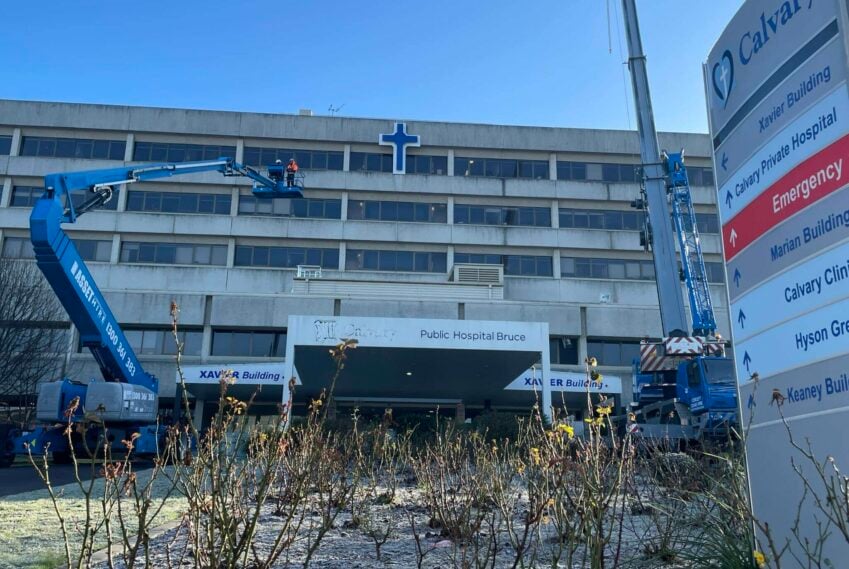
By Dr Patrick McArdle
As of 3 July, Calvary Public Hospital no longer exists. Nearly half a century of service to Canberra by the Sisters of the Little Company of Mary and those who inherited their ministry has ended in public health care.
Probably most tragically for those who share the Mission of Mary Potter, public palliative care is no longer available to those who are seeking a faith provider, who at one of the most profound moments of human existence, the facing of death, there is no option for care from a facility that shares faith and a belief in transcendent goodness.
The ACT Government has asserted that this decision is about ownership and control; about integration and efficiency, about investment and accountability. It has stated repeatedly and emphatically that it is not about religion. People of faith have just been asked to take that, ironically, on faith!
ACT citizens have mixed reactions to this whole saga. For some, who do not believe that there is a place for “religion” in any service that involves government finances, it is a day of some satisfaction.
For people of faith, especially but certainly not exclusively Catholics, it is a day of sadness. There is strong sense of loss that goes beyond a government takeover of a public service entity.
There is a growing sense that there is a narrower and more confined space for those who profess faith to live their beliefs in the public sphere in Canberra, perhaps in the nation.
This is a city that celebrates ethnic and cultural richness; it celebrates its long indigenous heritage—in both instances as long as there is no mention of the divine or the often-intrinsic connections between belief and culture.
The community here is too often derided as the “Canberra bubble” but so often ideas floated here or social experiments initiated here do have effects across the nation.
Many now wonder whether people of faith are even welcome, publicly welcome, in our social, civic and government spaces.
Some have opined that if 44 years of demonstrated valuable service to the community can be dispensed with for some claimed efficiencies in six weeks, then how soon before their religiously inspired service to their employer, to their community groups, to their fellow citizens can be dispensed with too?
The ACT and Federal Governments have stated that this decision has no impact or effect on other faith-based services in other areas of the nation; it will, we are assured, have no impact on the works of the Society of St Vincent de Paul, CatholicCare or MacKillop Family Services.
In fact, the ACT Government has pointed to recent contracts with such bodies; except that Calvary had a 99 year contract, now rendered void with 76 years remaining.
This decision, it is claimed, has no link to religiously-based education. Yet some of the voices cheering this outcome also call for an end to government funding of “private” schools and “private” welfare provision.
Some will see it as a precedent to argue with their own governments about other Catholic or religious health care provision.
There is a deep sadness but certainly not depression. You see it is about religion. It is about people of faith being free to proclaim that faith in the public sphere; it is about people of faith receiving the respect due as citizens seeking a voice and presence in a manner intrinsic to their very being.
It is about participation in society as persons of faith. It is about being able to seek employment with and services from those who share a fundamental belief in human dignity, the value of human life, and, the call of the transcendent to be a person who serves the common good.
In the end, it is about faith and it is about hope and it is, in the end, all about love—which will endure in our service to all those in need.
Dr Patrick McArdle is the chancellor of the Catholic Archdiocese of Canberra & Goulburn.
